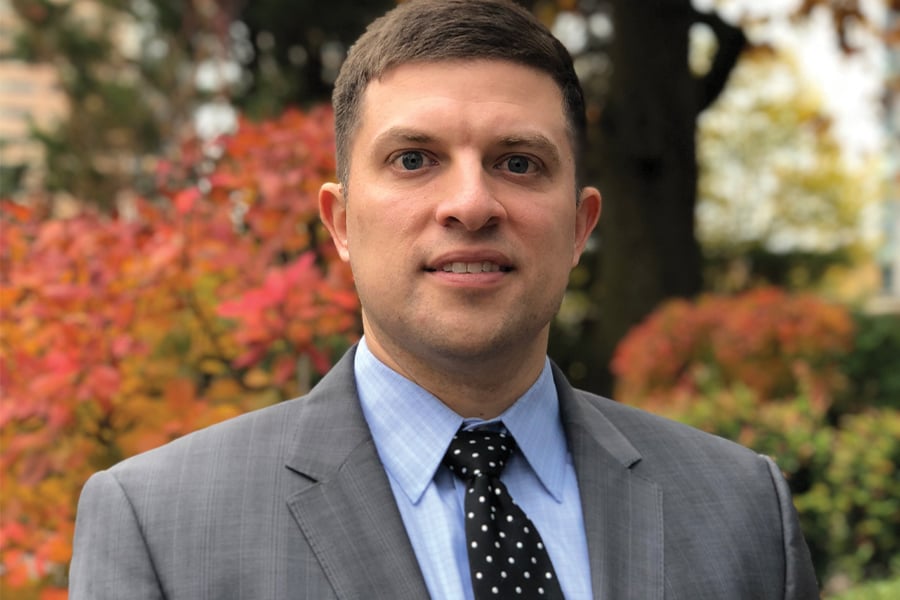While a lot of people see the annual health insurance
open enrollment period as a big headache, Michael Policar sees it as
a big opportunity.
Mr. Policar, wealth manager at HighTower Advisors Bellevue, has carved out a niche by rolling up his sleeves and familiarizing himself with the best ways to select the most appropriate health care plan for every unique situation.
"Plans change and family dynamics change all the time, so just checking the boxes for the same plan you had last year is not necessarily the best thing to do," he said.
Mr. Policar, in addition to raising a young child, is dealing with about $13,000 worth of annual personal out-of-pocket medical expenses, which helps him appreciate the importance of picking the right health insurance plan.
"People usually just want to do whatever they can do quickly because it's typically not in their wheelhouse," he said. "I look at this as part of my job because medical expenses could become the biggest expense in someone's life."
Because navigating the health insurance maze during fourth-quarter open enrollment periods is rarely intuitive, over the past four years Mr. Policar has honed his expertise as a value-added service.
"I see money that's just left out there when someone might be in the wrong plan, or not in the right type of plan," he said.
[More: Prepping clients for retirement health costs]
Common mistakes he sees include people signing up for high-deductible plans but not taking advantage of a
health savings account, or someone who is younger and healthier being overinsured in an expensive low-deductible plan.
Mr. Policar doesn't charge his clients extra for his health plan consultations, and even though he also offers his services for free to non-clients, he doesn't want what he does described as a pro bono service.
"I feel like if I can help a client save some money, I need to do that," he said. "And if it's not a client, it's marketing and goodwill, and a potential opportunity to earn a new relationship by helping people save some money and time."
[Recommended video: What does it mean to work in the best interest of clients?]
Mr. Policar doesn't claim any special expertise or training, he is just willing to spend the time poring over the documents and plan options to help find the best match for each situation.
"I'm sort of self-taught, and I try to put myself in the shoes of my clients," he said. "My own life has changed a lot in the last few years since I had a child and have dealt with some expensive medical bills. This is part of the value of being a fiduciary; it's more about doing the right thing for the client than necessarily something I can bill for."
Tip sheet
1. Familiarize yourself with the benefit options that are available to your clients on an annual basis.
2. Be proactive: Reach out to clients and offer to help guide them through the year-end open enrollment process.
3. Pay attention to the details, such as children reaching the age threshold for no longer being covered on their parents' insurance.







